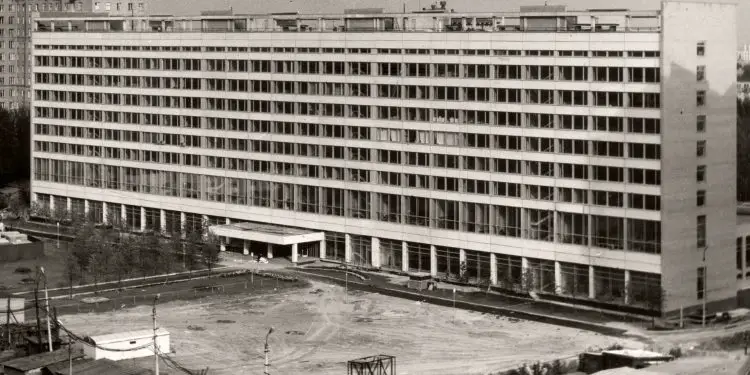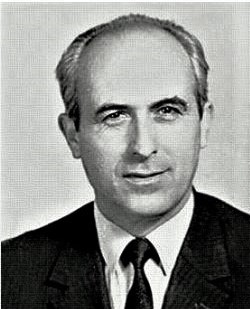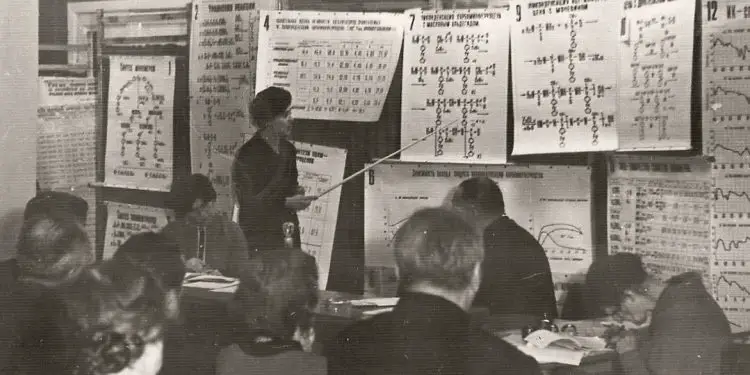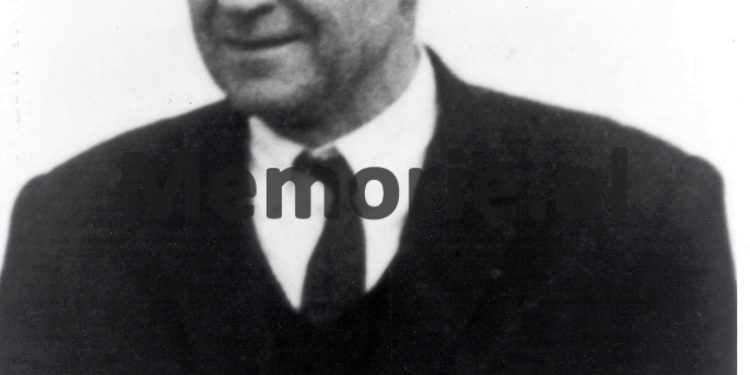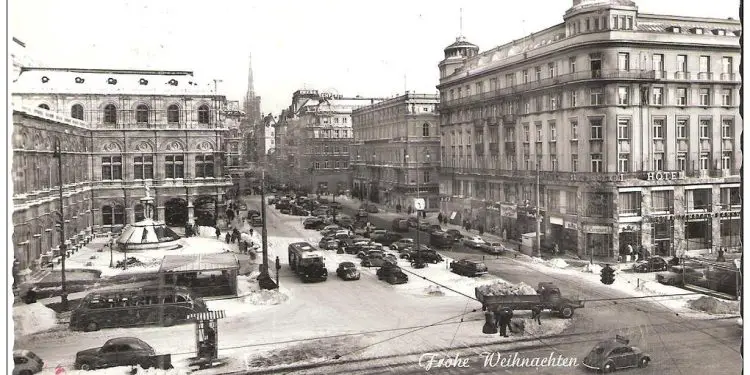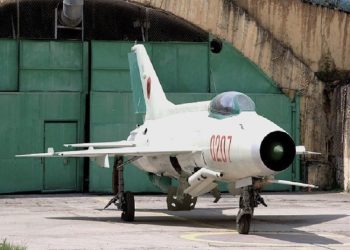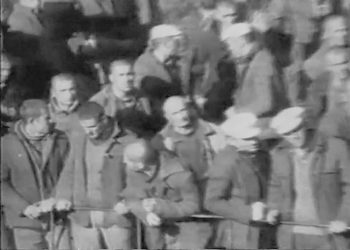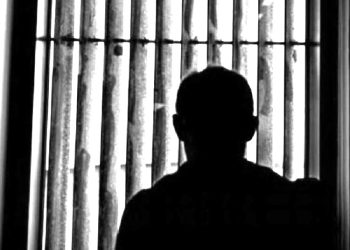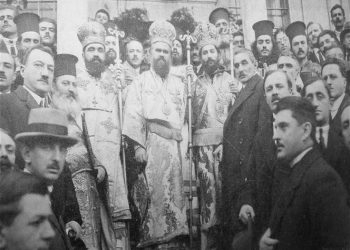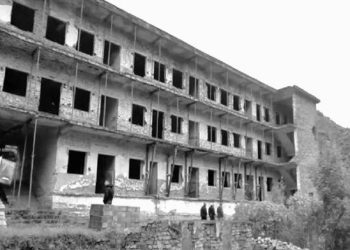By Petraq Xhaçka
The fifth part
Memorie.al / The purpose of this book is to unite the help in the efforts made to present the truths and horrors of the communist dictatorship in Albania. The main purpose of the book is not to show our people or anyone else that we oilmen have been innocent, because this has become known from publications in our press, from foreign televisions, as well as from direct meetings with the International Forum and the Albanian Human Rights. The author’s desire, is that through this story, along with other stories, fight any manifestation in any form, even moderate, that he may have to create a communist society. I think that even through this bitter personal history, the cruel, treacherous and overbearing face of Enverism will appear, that for half a century, held the knife with the tip in the chest of the Albanian people, with a pine eye, intercepting the movements for salvation from the outside, or rebellion of the people themselves, ready to push the knife to the heart, at the first movement. The events are set in the economic fields where it has appeared most strongly, such as the oil and gas industry, where I was fortunate to pour my energies, for a lifetime, and become a participant and witness in those events. All the events that are written in this memoir are true, not only without any exaggeration or embellishment of them, but perhaps, I don’t know how much I have been able to present the terrifying force of the events that took place in that decadent system of socialism, where there was no human feeling.
Continues from last issue
There were also smaller rooms, mostly for postgraduate students. In the first days of my arrival, I got to know all the Albanian students of this institute, who made up a delegation of forty people, for different branches of the oil industry. The old students welcomed us young people with love and offered us help for the first needs we had, especially in terms of adapting to Russian life, understanding customs, being careful from any ill-wishers, and many other needs smaller.
The first thing I did was throw on the new coat I had brought with me. It was a shame to go out on the streets of Moscow, in that wool jacket. My friends sold me a used coat, but in good condition, for one hundred rubles.
On the second day, with the help of old students, we went and registered at the institute. This was fitted into a large building, but which, as we later learned, was insufficient for the whole number of students. The administration was forced to organize the lesson in two shifts. The monthly scholarship for Albanian students was five hundred rubles. For students with excellent results, one hundred rubles more were given. Already at the end of the first semester, I managed to get this additional reward, for the high results I had in the lessons, and I enjoyed it until the end of my university studies.
Since we arrived two weeks before the start of classes, the friends who are well-known to Moscow, found plenty of free time to walk us through the most attractive spots of the city. So they took us to “Red Square”, with those magnificent churches and the walls of the Kremlin, to “Gorki” Park, the largest park in the city, and through other centers.
Old students in their free time often played cards, and brought small money to make the game attractive. We still didn’t enter these games, because we still hadn’t received the scholarships. We had some money as an advance, but we didn’t know how expensive life was there, so we kept our hand in spending it. In these games, we often laughed with one of the students, Muhamet, who during the game, got up from his seat and without realizing it, took the small money of a few rubles, which he could find in the pockets of his clothes that his friends had taken.
They enjoyed winning and harassing the losers, especially Muhammed himself, who always lost, but didn’t break the bank and did enough numbers to laugh at. But when the winners got up, they put on their jackets; they knew from the pockets that they had won only their money. They discovered Muhammad’s trick and still ended the stories with laughter.
The joker also acted like this with his roommate, Napoloni, who he would take and eat from him the food he found in the dresser. When Napoleon asked him for an explanation, he replied, allegedly annoyed:
– What the hell is the difference, yours – ours, or ours – yours!
Even with these little things!
This expression of his became quite popular. We all used it and laughed at this find that we borrowed from him.
All of us Albanian students had good relations with each other and never during the five years, I was found neither as a participant nor as an observer, in any conflict or occupation, not only between us, but also with the Russian students, or other foreign countries. Chinese, Bulgarians, Poles, Greeks, and others were numerous in that institute.
Old students, of course, all had their girlfriends. They were their lovers or, some even their fiancees, so they usually spent a part of their free time, vacations or weekends with them. We young people, just coming from the oil fields, from a life where we only knew work, boots and mud under our feet, found the example of the old ones really wonderful. We attacked like those unchained dogs and started meeting girls. One evening, I met a student of the ballet academy, Yvette, who had a beautiful body, sweet face and blond hair.
I will not forget the difficult situation in which I found myself with him on the first day of going out together. She came and took me to the dormitory, because I did not know the streets of the city. We boarded the tram at the station in front of the hostel and then took the metro to the city center. There we walked on a wide street, which I noticed was called “Gorki” Street. I had about fifteen rubles with me. We agreed to go to the cinema, somewhere nearby. It was a calm, beautiful evening, and the street was lit by the many lampposts. Walking along the street, I noticed that on the other side, people were going in and out of a bar with a sign that said “Ice Cream”.
I thought for a moment that the money I had should be enough to buy two ice creams and go to the cinema. So I invited Iveta to get ice cream. I spoke understandable Russian, because I had studied it for four years in high school and while working in the oil field, I was often given the opportunity to use it near the drilling probes with the Russian specialists working in the oil sector. When we entered the store, my eyebrows rose, noticing that the bar was not just an ice cream outlet, but a luxury setting. At the entrance, the waiter waits for us, a guy in a red uniform, who escorted us to the table he assigned us.
I was not afraid of whether I would have enough money, but I still thought that, in the end, we would not go to the cinema. As long as we, outside on the street, bought an ice cream with pellets for 50 kopecks, my fifteen rubles, oh, would definitely be enough!
But when the waiter brought us the bill, I froze in place and my face burned. What was I looking at?! The account marked not a little, but forty-six rubles! I wasn’t crying because it was a lot of money, but the problem was that I didn’t have it. I tried to contain myself. I reached into my inside jacket pocket and pretended to be surprised that I had forgotten my wallet in the dorm. I took the fifteen rubles I had from my pocket and was turning them over in my hands. The girl understood the situation, opened the bag and fortunately after digging into it, although with kopecks, she was able to pay me the amount due.
When we got out I begged my friend to go back to my dorm so I could get the money for the movie. We returned paying only for the metro, because we had no more money for the train. As we entered the entrance of the dormitory, I apologized to her for leaving her waiting out there in the corridor, but I promised her that I would be back soon. Our room was on the first floor and the door was visible from where she sat. Fortunately, I found Abedin in the room. I begged him to lend me a hundred rubles, because I had the rope around my throat.
– Where can I find so much money?! – He jumped up.
– How can we do it now? – I was not part of it.
He began to think, while I, out of confusion and numbness, could not think of any path.
– I’m going upstairs, to the old people, – Abedini told him and then he left, leaving me alone in the room. My wait lasted about a quarter of an hour, but it seemed much longer to me. I believed she understood that I was asking for money from others, otherwise I wouldn’t have been so late. Abedin had found the money and I, to show them a high-class cavalier, and to restore the dignity from the stranger, took my lady to the cinema, not by means of any means, but by taxi. Then, despite her objection, I returned the thirty-four rubles I took for ice cream, and thus the adventure of the first walk became complete, salty, educational and unforgettable.
Since then, it became a lifelong habit for me, that every time I left the house, either for work or service, I would check the balance of money in my wallet and then go to a restaurant to eat, or to a store to buy.
We were four new students at the “Gubkin” institute that year. In addition to me and Abedini, two young boys from Vlonia had also started their studies: Dhimitër Deda and Ramadan Hoxha. Our company was completed by Periklius the Priest, who had been in Moscow a year longer than us. We really had a group bound by love and mutual respect for each other.
And our friendship, we strengthened it every day, and it became a flint, like the societies that connect far from interests, typical for the years of student life. These years, in general, are the most beautiful period of life for everyone. Anyone can then imagine us, who had gone to a more developed and bigger country. It was the climate of Russian-Albanian relations that made the atmosphere around us very favorable.
The friendship of the five continued even in the homeland until recently. Then a serious illness separated the late Ramadan from us very quickly. Abedin was removed from the university chair in 1981, for political reasons. To keep him isolated, in a form of semi-internment, he was sent to work in the Selenica mine. Boredom, perhaps, had a negative impact on the serious illness that took the life of this honest and hard-working oilman, this friend and my lifelong friend, with whom, during my student years, we shared our bread and butter.
The storms that, over the years, developed full of electricity over the oil wells significantly marked the lives of all of us. On one of the first days of our placement in Moscow, a student from the classes above us came up and asked me if I knew how to type. By saying yes, he proposed that I print for him, in Albanian, translations of Russian films of the company “Mosk-film”, films that were sent to be shown in Albania.
The student was not from our branch, and I can’t even remember his name now, he told me that they would pay me one ruble per page. I agreed and immediately started working long hours, until late at night, in order to earn some money, because as a student, my needs were great. Neither I nor my friends expected any money from our families.
Some of the comrades, in order to increase to some extent the insufficient income of the stock exchange, did heavier work, up to unloading goods from trains and large trucks. Some of them even made even greater sacrifices: they sent a part of this money to Albania to help their families.
When Koço the Elder found out about the job I had taken, he said: – Look, he is using you. He does not do the translation and typing himself, but he is paid as if he does. He from “Mosk-film” gets more than what he pays for.
The late Koço, one of the victims of oil strikes, came to the “Gubkin” Institute three years before me and was beaten with oil and vinegar. He taught me to do it to the “Mosk-film” broker, as he did to him. I had to tell him that I would finish the typing on the date he asked me for the pages, but I had to be careful that during the previous days, I didn’t have to hand him anything. I had to put it off until the last minute. Then, two days before the date that he needed the Moscow film studio, I told him that I had not been able to print them.
To his pleas to finish it in the remaining time, I would answer with tears, that I would have to sacrifice studies and sleep, that I would have to work all night, but for this, I would necessarily I had to be paid more, and other stunts like these. I started to follow Koço’s advice and this tactic immediately gave me results: he started paying me one and a half rubles per page. He was forced to give me the increase, because if he did not submit the typed translation on time, he would be forced to pay a fine.
However, he still received from “Mosk-film” more than he paid me, but for me and this income, it was very good. I continued this work until the second year, until I was lucky enough to be assigned a translator for the group of Albanians who studied at the “Lenin” Party High School, where there were many leaders from the communist parties, from all over the world. .
Every day I went to that job for 4-5 hours and I was not able to attend most of the lectures directly. For this reason, at the beginning of the school year, I agreed with some students, with whom I was friends, that they would give me the lectures they had taken notes for when I would have the exams. With them, we had the same lectures, but we did the exams on different dates, because we were different groups.
As for the laboratory and practical works, I had it easier, because I could go at the end of the day. This practice of afternoon lectures continued until 1959, the year we left. After 1961, the institute moved to the new building, a large and beautiful building erected next to the dormitory on the big boulevard “Mozhajskoe Shosse”, very close to the “Llomonosov” University, about ten minutes’ walk.
– In this way, for the following four years, I lived with a much larger income than my colleagues, because the payment for translations in lessons directly from the lectures of the lecturers at the Party School was high. This included the hours of excursions, which I did not have the opportunity to go to. In my absence, student Leka Shkurti translated. This was one of the most prepared students of the group and he managed to master the Russian language well.
He and the class teacher always wrote the hours in my favor, to help me as a student, because he could not be paid, but he did that work voluntarily. This was also because for the years that I worked with them, I created good and warm relationships. They respected me and loved me enough. These students prepared seriously. The rest did not have the necessary educational background and barely digested the lectures, as they had come there in adulthood.
There were times when I also helped some of them during the exam in the translation I was doing, since by listening to their lectures often, I was able to learn and absorb the subjects. Sometimes the answers, they gave it wrong, but I translated the corrected ones to the lecturer, so that the assessment was higher. I felt a kind of pride, when they already, not as former leaders, but as Albanian students, did well in the exams.
The students of this school were mostly elderly and family members; therefore they always had a good part of their minds on their families, on their wives and children. They led a closed life and often, when there were evenings in the premises of their school, since they were forbidden to make friends with Russian women, I would bring some girls there so that they too could dance and spend some time pleasant hours.
While the Russian girls, for their part, came with pleasure to these evenings of foreigners, because they, like all the Soviet people, led a life isolated from the world, like all the countries of the socialist camp, where more and where less . Memorie.al
The next issue follows




